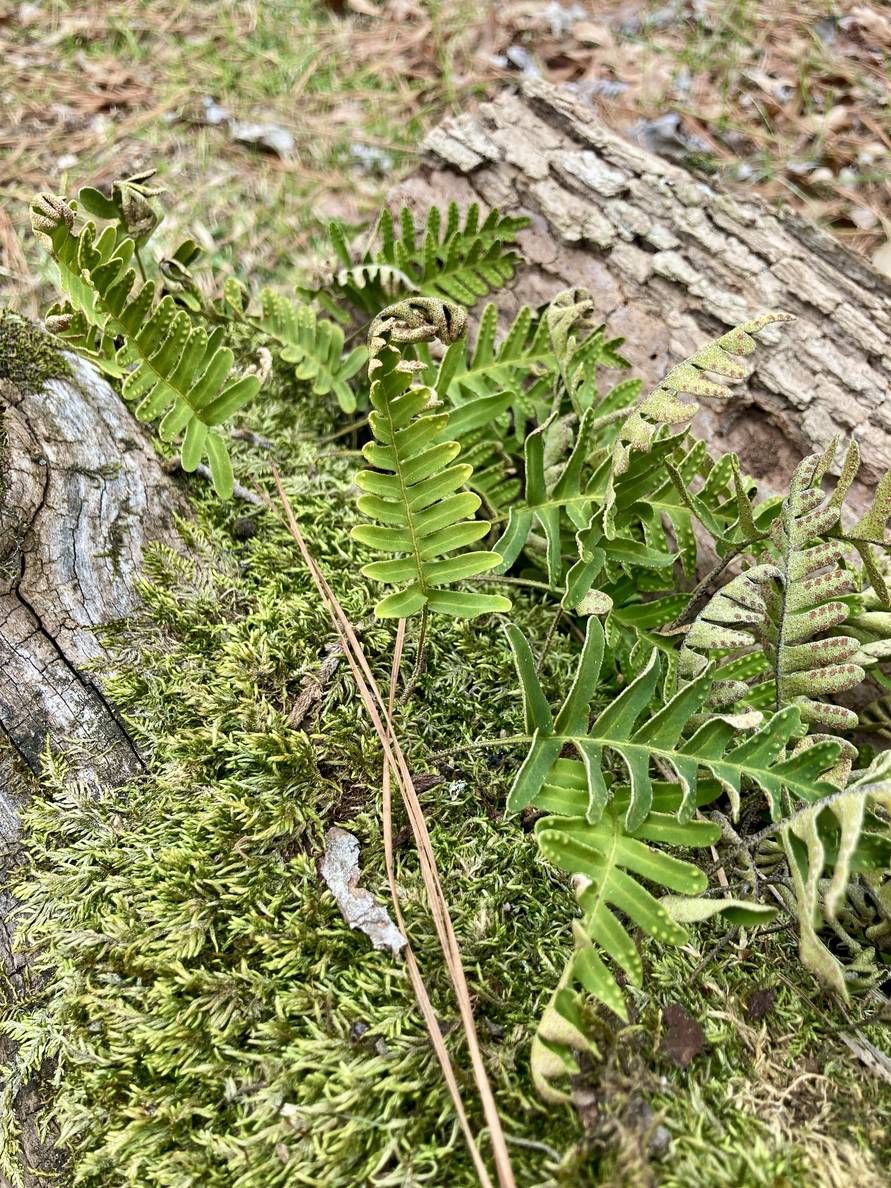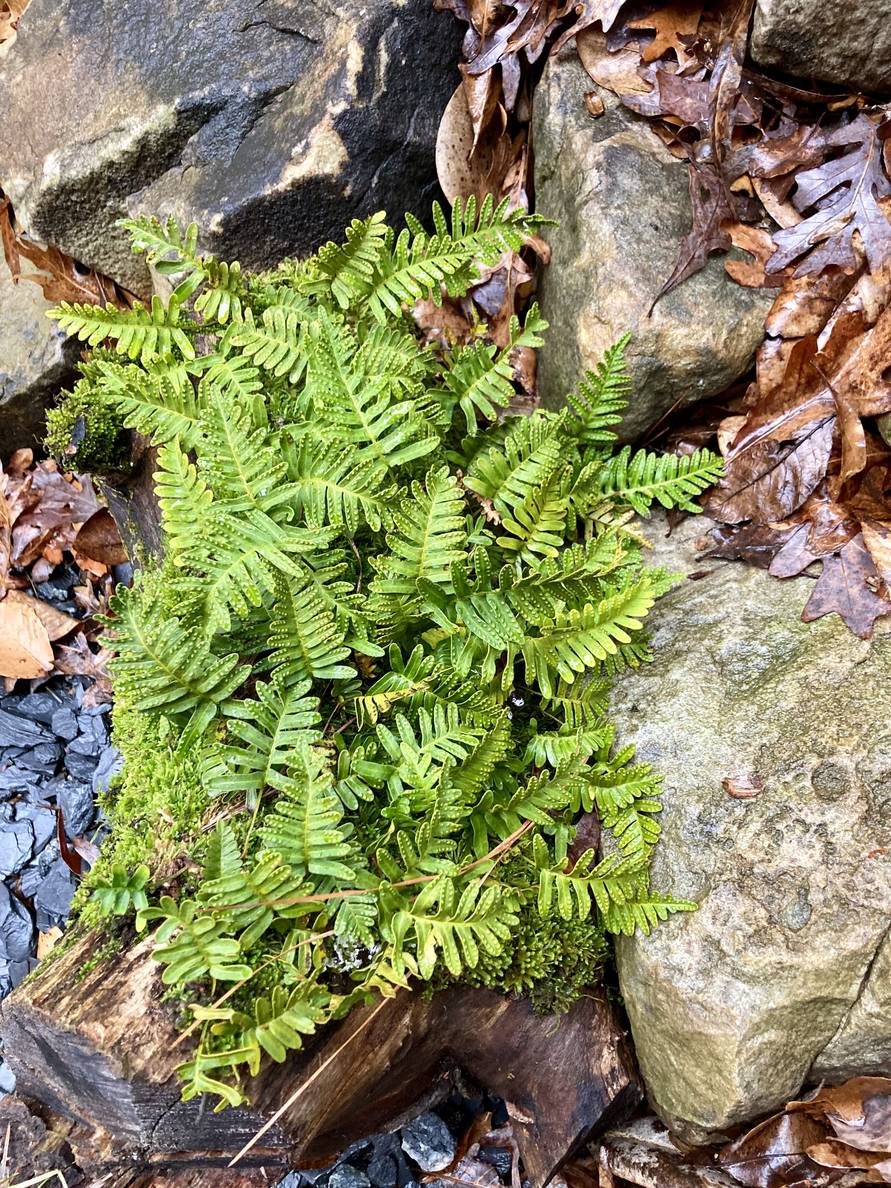Last week while on a run I noticed some neighbor’s cut logs set out at the street for collection. One of the logs had ferns growing on it.
Friday I walked down with my phone so I could try to identify the fern with iNaturalist. I posted a couple of pictures and then walked the fern log home. I figured if it were an introduced species, I could put back out for collection, but if it were native, I could do something with it.

The iNaturalist community confirmed it as a Resurrection Fern. This fern doesn’t grow in soil, but on trees or rocks. But it’s not parasitic; it doesn’t get any nutrients from its host, just a perch. It’s named after it’s behavior of looking dry and dead when the weather is dry, and then returning to green lushness after a rain.
The north side of our property is only 7 feet wide and consists of stone and slate-chip steps. It gets very little light, so that seemed like a good spot for the fern. I put the log against some of the boulders in hopes that it will spread and colonize. I’m debating whether I should try to tease some of the ferns off of the log and place in the rocks.
The day after I placed it, we got some rain, and it lived up to its name: looking much fuller and vibrant than when I found it.

